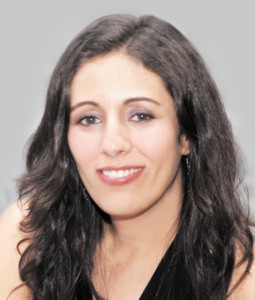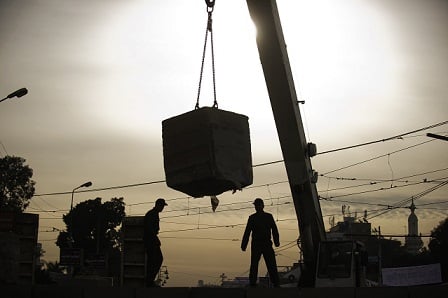
Egyptians are devastated by the loss of life and bloodshed of the last week. We are also frustrated and angry by the amount of misinformation spread. The misinformation has aided the violence. This is why I argue that Egypt needs more facts.
We have an opportunity to move forward as a nation. That opportunity is always there for us, despite the horrifying events of the last week. In it is a power that cannot be taken away by the powerful entities around us. We can seize the opportunity and harness that power by working together to spread more #facts. Here are six important points for consideration.
1. #Egypt dominated social media, which is an important information source
#Egypt dominated twitter this last week, as did #anti-coup, #MB, and other related hash tags in Arabic and in English. Facebook gives us access to a world of information about what is happening around us, with new memes already turning “Facebook yellow”. Undoubtedly, social media has been pivotal in understanding and shaping the nature of events in Egypt as they unfold in real time since before the start of the January 25th Revolution.
Information spread this way is no longer capital held only by youth. My 70 year-old parents have Facebook accounts they rely on to follow events. A friend received a message from his father not too long ago that he wanted “the blue bird” after he had become proficient with Facebook. I assume these are not the only technologies adopted by older generations.
The power of information spread this way comes from the very high number of ‘information deposits’ that can be collected, aggregated and spread among people. This power extends beyond direct users of social media as information diffuses to non-users. We could put this power to greater use with more real facts.
2. Traditional media is influenced by social media
Traditional media outlets acknowledge the influence of social media on their work. On Friday, the Washington Post listed “The 23 Twitter accounts you must follow to understand Egypt”. Interesting is the progression from their 3 July listing of “The seven people to follow on Twitter for Egypt news and analysis”. Perhaps more interesting is that the list has grown and included more Egyptians.
First-hand accounts and photographic and video documentation collected by average citizens are critical information sources for traditional media, also serving as a powerful tool for interaction with journalists online and challenges to the reporting of events. These interactions have been invaluable for holding reporters and news outlets to a higher standard in recounting and reporting facts.
And yet most of us still have frustrations with reports from traditional media sources, both domestic and foreign, and understandably so. The US channel TV NBC reported a quote from Egypt’s Prime Minister Adel Iskandar. Except that Adel Iskandar is not the Prime Minister of Egypt, but a lecturer at Georgetown University in the US that has been on English-language TV channels analysing the events in Egypt. Apparently, the NBC fact-checker was unable to verify that Hazem El-Beblawi is in fact the Prime Minister of Egypt. This is a mistake less of us would be aware of without social media. (Here is an image of the mistake in case NBC realises their error by the time this article goes to press.)
3. Misinformation expends energy with less positive consequence
With the blessings of social media come curses. These powerful tools are just as useful to spread misinformation, consequences of perspective, bias or intentional misleading. Fortunately, some have dedicated themselves to drawing attention to this. A great example is the Tiananmen Square type photo of an old woman in front of a bulldozer tweeted by many without the follow up picture of the military soldier helping her out of the way.
While the nature of the system gives us all an opportunity to refute misinformation, ultimately it is energy expended for less positive consequence. That energy could be better directed towards spreading facts about what we know has happened, backed up by true, unaltered documentation.
4. Spreading misinformation is civic corruption
Most of us are not naive to the motivations behind spreading misinformation. Some of us do it unintentionally. I myself have fallen prey to spreading information shown later to be untrue. It is hard to know these days what is true and credible. People sometimes simply make mistakes.
I do, however, strongly believe that the sooner we all recognise this as a form of civic corruption, the better off we will be. As Egyptians, we are quite understandably fed up with the level of corruption in our government and in our society. Citizens in countries all over the world, developing and industrialised, have had enough of corruption that fundamentally undermines our societies.
I strongly believe that by participating in the spreading of misinformation, we are perpetuating the corruption of our societies. And we can mitigate this. We likely cannot stop it. But we can do better. We can use our energy to better disseminate facts.
5. Information gives the population power
Which brings me to the first of my two pleas.
Let us use information and facts to take some power back as a people. People often rally behind the call that education is key to development and progress. Part of the power of education is the ability to access and process facts and information. The ability to disregard was is untrue and take in what is true helps us form opinions about what is happening and find potential solutions for the problems around us.
It is facts that should help shape our opinions, along with our perspectives, values, and ideas about what is right and just. The reverse should not be true, that opinions help shape our facts. This is how we take more power back as a people. We give more facts. We give less opportunity for misinformation to manipulate the opinions of people.
I do understand obstacles to objectivity. Blood, guns, insecurity and chaos make finding objectivity hard. But my plea is this: Can we try when we tweet, Facebook, and talk to each other to qualify what we know as fact, what we believe, though yet unproven, and what we present as our opinion? I often hear about how poverty is key in the manipulation of people. But is it not the easy believability of misinformation given one’s own circumstances that underlies the ease of this “manipulation”?
6. Reconciliation will come through real facts and information
Misinformation finds good company with anger. And all of us are angry, by what we are seeing and what we are living through. The events of this last week and the recent past have understandably made us angry. Egyptians and Egypt are hurt, no matter where you place blame or virtue.
We all know that reconciliation has to be part of the process for Egypt to move forward. And it is vastly more facile to assign blame to others based on perception than fact. Equally, forgiveness and reconciliation are aided by a more fair understanding of facts. I for one believe that I would feel differently and less angry about the events of the past week if I had a few key real facts. Sure there is a belief that some people cannot to be reasoned with and no amount of facts would change their opinions and actions. But I do not believe this is true of the majority of Egyptians and I do think I am not alone in this perspective. My second plea is that we use facts to help us with reconciliation.
So whether it is through a #fact twitter hash tag or any other means, I believe Egypt needs more facts. This is how we take power back as a people. This is how we defend our fellow citizens, our rights, and our country. This is how we reconcile. This is how we move forward. We cannot do it with facts alone, but we also cannot move forward without facts. I believe the Egyptian people have a desert thirst for facts, particularly after the last week. Can we work together to reveal more facts?




